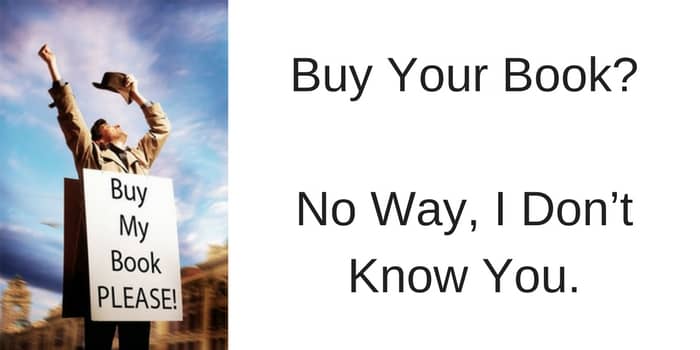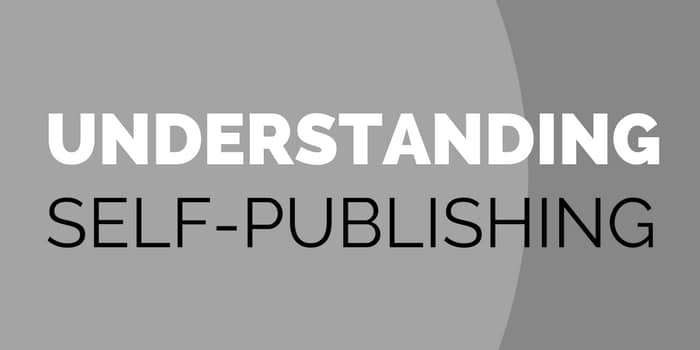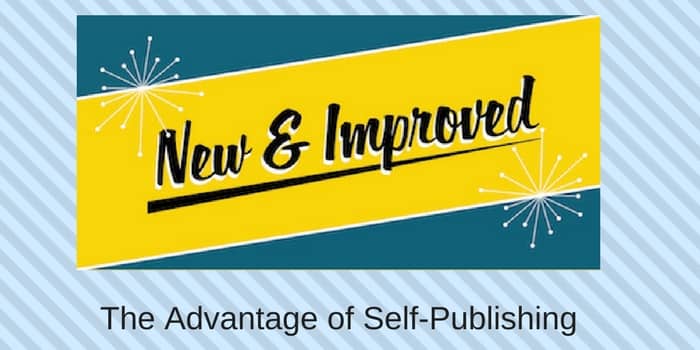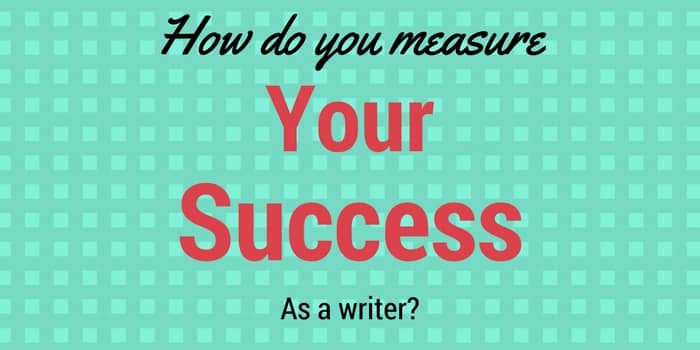 Who are you?
Who are you?
The ebook revolution really has been completely misunderstood by many new, and even perhaps not so new authors.
Whether the author is using self-publishing, small press or traditional publishing, I see so many making the same foolish mistake when it comes to convincing readers of their wares. ‘Buy My Book’ they scream, yell and even shout in caps. ‘BUY MY BOOK!’ ‘CHECK OUT MY BOOK!’
Well, guess what? I certainly won’t be looking, let alone buying your damn book. I’m sure most readers, with the possible exception of the author’s mother, won’t be either. The reason is so simple. We don’t know who the hell you are, what you write about, how well you write or even what nationality you are and language you write in.
I like books. I like reading. When I want to find a new book to read I do what most readers do; I think of an author. ‘Oh, a new Ian Rankin book perhaps. Steven King? Possibly. Oh, I heard there’s a new Jasper Fforde book coming out soon. Or perhaps Debbi Mack, Jens Khun, Jack Eason or Luke Romyn.’ You would all have heard of the first authors I mentioned, but maybe not the second group. Well, they are authors I have met online, chatted to, noticed or quietly popped off to read a preview of their books. The other thing they have in common is that after I did some research, I discovered that they can write and write well.
So, of course, I read mainstream authors, but more and more I’m reading new and self-published authors. Not out of some kind of friendly empathy and solidarity, but because they write stories I enjoy reading. I’m not a habitual review poster either, so it’s not a ‘suck up’ and they’ll do the same for me mentality. I read their stories to enjoy, not to make them feel obliged.
My point here is that no one buys a book. They buy the product of an author. So bashing readers over the head with ‘Buy My Book’ is doomed to fail. A better attack is:
‘Hey, nice to meet you. What do you do?’
‘A computer analyst. And you?’
‘Oh, I’m an author.’
‘Is that right. Must be fantastic!’
Making a killing selling a book is a pipe dream. But establishing oneself as a credible author and profiting in the long term is not.
The last point I would like to make is that having a blog is great. I can have a rant every now and again!




Having recently released my first book I understand why people fall into this annoying, desperate, and pointless (counter productive), approach. But readers are much more open to hearing about it from a third-party. If I tell you to buy my book because it’s great that won’t convince you, but if someone else comes along and says, “hey, this is a good read,” that carries some weight. Of course, that requires patience, because the author needs to wait for other people (besides our mother) to read it and share their opinion.
Patience also comes in handy when building up the relationships Derek speaks about. We may be doing it with an eye on expanding our potential reader base, but it’s never going to grow much if the first/only thing we ever want to talk about with our new online buddies is our book.
James – you never said a truer word. What most newcomers fail to appreciate is that it takes time to make your name known in the world of books. :)
Derek – thanks for the plug mate, much appreciated. :D
Excellent post.
I do also find it very off putting when someone either DMs me the second I follow them with details of their product(be it book or be it something else) without ever talking to me. Likewise @mentions, without any sort of introductary chat.
I’ve been blogging for some years now, and started before I even thought about putting books out there, so I’m known a little bit through blogging. Since what I tend to blog about is also reflected in my books, it does form a united front tying subject(s) of interest and me together nicely.
But it is so hard to get your name known.
Thanks Viv. You make some very good points, especially about blogging as a means to make yourself known. And yes, it requires hard work, commitment and unending patience. Qualities that the ‘buy my book’ authors just don’t understand at all.
DMing me instantly to say “BUY MY BOOK” annoys me as well. For awhile, I was instantly unfollowing anybody who did this, because I was so irked by it. Though it seems that this has decreased somewhat (at least for me) in the past few weeks.
Twitter is full of these people. I thank people for following me I don’t spam them. Make friends, it’s more fun.
I had an author in my office who said, “When I finish my book, I’ll start a blog.” Had to tell him he had it completely backward.
I hear this loud and clear, good blog post.
That said, being “known” is not an easy thing to do, or rather to start if you aren’t Stephen King with who knows how many books, or another best seller in every airport.
Since I know that people don’t know me, I tried to “introduce” myself er? let readers get to know my writing by posting a page of fiction a day. The ironic part is that selling myself is the hardest part. Even writing the About me / author’s bio is a challenge, this being my first published book.
Also it takes time to get to know other authors, I’m reading several books and have only reviewed a few a of my unknown friends work. The ones I did review, I read stories posted on their blogs for free long before I purchased their e-book.
I think I better just finish the second novel, and then the third. And continue searching for good stuff to read.
But, even with a tweet recommendation, I know I won’t buy the book unless there’s a good writing sample. Like you said, I don’t know you, and that takes time.
True Uva. It’s not easy at all to become known. But then again, with the advent of social media, it’s a hell of a lot easier than in days gone by. Yes, you need to work damn hard at it, but how much easier is it than trying to get newspapers and magazines to pick you up for a story or review.
Well exploited, social media is a goldmine for authors. If they know how to use it.
So true!
I hate nothing more than the Buy-my-book attitude. I don’t mind having the links on my Twitter account, but it really depends on the wording. There’s advertising and they’re forcing. If I read something like: he loves her, she doesn’t know it yet, a romantic comedy… that’s okay. But: My new book’s out, buy it now! I’ll pass.
Like you, I don’t tell people anymore that I’m reading their book. In most cases, I sadly have to say, I stop reading anyway, being the fussy reader/editor I am. But I’m going to be all over you if I love your work and will recommend it to anyone who can’t run fast enough.
Very accurate post and comments, all good points. I am not a writer, and have no aspirations to be, but I appreciate how difficult it is to be published and build a reputation with e publishing. It’s a hard market, and I admire anyone taking the plunge. As for me, I read well known authors, but also have begun to read more and more independent authors, and find excellent quality in the writing I choose to read. How do I choose? Blogs. I love to read blogs and bounce around all over the place. If a blog is well written and entertaining, and the author is also publishing their work online, I will often buy a book and read it.
So there is my two cents worth, the viewpoint from just another reader of the published word. :D
That’s interesting. I’m the opposite. Shouldn’t say that openly, but I don’t like reading blogs. A few maybe, but I’m a slow reader and many posts are sooooooo long I lose interest. I will read a few blogs per week, though. Mostly because I see a link somewhere.
Stella! Wow, what a compliment. For someone who doesn’t read blogs very often, to see your comment here is absolute gold! Btw, I write short blog posts especially for blog readers like you. :)
I agree with you Stella. A long blog post is like a long sermon. You lose the attention of your audience after a certain amount of time. I read fairly fast, but I also enjoy reading comments, so shorter blog posts make for more interaction. Derek’s blog is certainly lively and interactive and I always enjoy seeing what you all have to say. And throwing my two cents worth in.
I’m much more interested in the book than in who the author is. If it’s in a genre I never read, all you’re doing is annoying me. If it’s a genre I like and I take the time to look at your book and it’s a piece of crap, I’m even more annoyed. I read very few mainstream books, so I depend on reviews on various sites, including blogs. If I see a tantalizing review, a decent sized-sample and a realistic price, then I’ll dip into it. My first question for the “Buy my book” nags would be: What are the chances that any total stranger you come across is going to want to read the genre you write in?
So true Catana. An author writing chicklit romance could bombard me hourly 24/7 and waste a lot of time and energy. It’s just not my genre. I think many authors believe everyone will read their book. So far from the truth. Most readers are very genre specific.
I haven’t yet been too drawn to the e-published and independent writer’s group…but I can’t say that it’s so far away. But it can be so irritating to see constant promotion of someone’s book. VERY VERY ANNOYING. That in and of itself can be cause me to choose to never, ever read their material. But, retweets and mentions by others that I follow can influence me to at least take a peak. And blogs are a help too, if a blogger I’m friends with now publishes a book, I am very likely to read it, if not because it’s interesting, but because they have supported me in my writing endeavors and I would like to do the same for them.
Thanks for the mention, Derek! :)
I, too, get tired of the constant barrage of tweets touting books.
A little BSP is fine, but enough already …
Viv, I think your point about starting out by blogging is a good one. Your blog expresses who you are. This way readers get to know you, and may seek out your books.
Hi Derek…This is definitely very interesting for me…My friends here told me I have to bookmark this…Thanks!
I enjoy writing. I don’t write to sell books; I write because if I don’t I’ll go nuts. Don’t get me wrong though… I would love to sell a ton of books and be able to quit my part time job (although I know it’s good for me to get off my ass and do some manual labor once in a while) and write full time. Still, I manage to write five hours a day seven days a week.
I should think a lot of authors shouting “buy my book!” might want to rethink just why it is that they write… do they do it for someone else? Or do they write for the love of writing? If they’re writing for someone else, they’re ego-climbing. They need to hear: Oh! But you write so marvelously, my dear!
If they write for the love of it, the care they put into their words will show. Or am I being idealistic?
Nothing wrong with being idealistic Dan, and you’re right in pointing out that writing and writing well is by far the most important element. At the same time people need to know about you if you want to make a success of your writing. As other commenters have said, blogging is an ideal platform, but a little self promotion is always necessary. It’s how one goes about this that’s the issue.
I think the point of my post was that you can’t rely purely on ‘pumping your book’ over and over. It needs balance. Sure, use services such as twitter and Facebook to make people aware of your books, but there must be more for potential readers to discover. More about the how, why, what, when and where you write and who you are.
A person who pushes his or her books relentlessly reminds me of an insurance salesman at a family reunion. Everyone avoids them.
Don’t be too tough on the keen marketeer. We all get that ecstatic enthusiasm when a book is published after a long hard slog.
Let them have their moment. They will come down to earth and moderate their approach after a while.
I don’t agree, Alice. Enthusiasm is no excuse for being obnoxious. What are the long-run costs of that enthusiasm? Most likely, the loss of sales as potential readers swear off the person. And for too many of these “marketers,” they’re more likely to be following bad advice. Some of them stop only when they’re bluntly told that they’re harming themselves.
Well, I haven’t met an obnoxious writer, but quite a few enthusiastic people.
Funnily enough, I went back on twitter after posting my comment above, and there she was, beaming out of her post; a newly hatched writer. She had just published her book online and couldn’t wait to tell the world.
I felt a mixture of happiness and fear for her. She had worked hard, produced her book and thought the world would embrace her and say – ‘well done’.
But she will slowly learn that it is not that simple and she will have to work as hard promoting herself, without annoying others, as she did on her book before she sells many copies outside her family.
It is a tough game we are in. A bit of human kindness can go a long way.
I have to side with you Catana. With the number of followers I have, I get bombarded every day with these pests. The worst are DMs from authors who I’m not following and are not following me. It shouldn’t be possible, but it’s done with an automated Twitter program.
I read three author blogs only yesterday espousing the benefits of this program. So it’s not by naivety. These pests are so fully automated, they don’t even need to read their own twitter stream. So they probably won’t see your tweet if you complain.
Sometimes, when I see posts advocating this swarming method of self-promotion, I’ll leave a comment to counter them.
I do agree with Alice’s statement: “It is a tough game we are in. A bit of human kindness can go a long way.” The problem is that naggers are addressing two different audiences: writers who are aware of what’s going on and have either rejected it or are in competition for the same eyes, and readers who aren’t writers and know they have plenty of choices without having to put up with such nonsense. As a class, readers don’t know or care about the struggle and work that go into writing and self-publishing. As a result, they’re unlikely to be sympathetic. They’ve also been known to lash out against self-publishers as a group. Unfortunately, in real life, the behavior of a few is almost always generalized to the whole.
Derek sweetie so true. I have stopped following writers who do nothing but tweet their book links. So boring, Thank you for reminding them. Oh and Debbie Mack is Fab!
OK back to writing for me.
I am new to the whole writers’ blogging and Twittering (I was previously only using it for mynon-creative professional alter ego) and I have started unfollowing people nearly as soon as I followed them. Why? When I discovered that they were tweeting about nothing else except ‘BUY MY BOOK’. I don’t mind an occasional reminder or review of it, interspersed among other tweets, but 20 tweets in half an hour? Seriously? In that case, I wouldn’t read the book even if you were the next Ian Rankin!
It is the frequency Marina. I agree a tweet or two each day about your book is fine so long as there are other tweets of interest in between.
Even on my @whizbuzz account which is promoting books and authors from my Whizbuzz blog, it only sends promotional tweets a few times a day. In between are tweets of interest about publishing and writing in general. Also, it is an automated account, but I have not had one complaint from people as I believe it is an account that is informative as well as promotional.
But it’s certainly not tweeting 20 times day, let alone per half hour!
Derek,
This is a timely and apparently universal topic. When I first started networking with other writers on Twitter, I was overwhelmed by the hourly spam by some of them. I thought the point of Social Networking was to actively interact with others who share your interests, experiences, career, and the like.
Authors seem to be the worst offenders. I also follow actors, musicians, humorists and artists. People accustomed to performing and interacting with others seem to be those least inclined to use the hard-sell technique, but they are often those with the largest following and the most often re-tweeted. I enjoy the personal bits about their lives and the quips they manage to fit into 140 characters. Communicating so much in so few characters, and making it entertaining, really is an art form.
Now, I’m following FAR more people than I wanted, yourself included, mostly because they initiated contact by following me. I no longer follow obvious spambots or hard-sell-only tweeters. I enjoy exchanging witticisms and commiserating over the trials that only other writers can appreciate. Or comparing shopping lists. ;)
The hard-sell doesn’t work. The books I’ve bought have been written by writers I’ve gotten to know, either by hosting them on my blog, or taking part in snippet sharing web-rings with them. In other words, by reading examples of their work online and interacting with them on a personal basis. For writers I’ve met under those circumstances, I’m willing to step outside of my preferred genre to be supportive especially if the writing is of good quality.
I think the spambots and continuous hard-sell tweets are a direct reflection of a writer’s tendency to be what my husband so aptly calls “socially inept.” Writing is a solitary practice, and writers are generally introverted by nature if not outright anti-social, I know I am. There is a segment of the writing population that never gets a chance to develop any social skills at all. We’ve all met them — brilliant writers with personalities that send you running in the opposite direction. If writers aren’t careful, the very shyness, or social discomfort that led many of us to first put pen to paper could be the very quality that impedes our success.
I’d never thought about it this way JC. But, yes writers can be a bit, or very, solo. Perhaps it explains some of the methods used by some in promoting their books.
Well said as usual Derek. It’s easier now for shy wallflower authors with the internet – Twitter, FB and a blog. They don’t have to leave the house and they can post their best photos. (Especially the ones of their pet). The author is who the readers want to get to know.